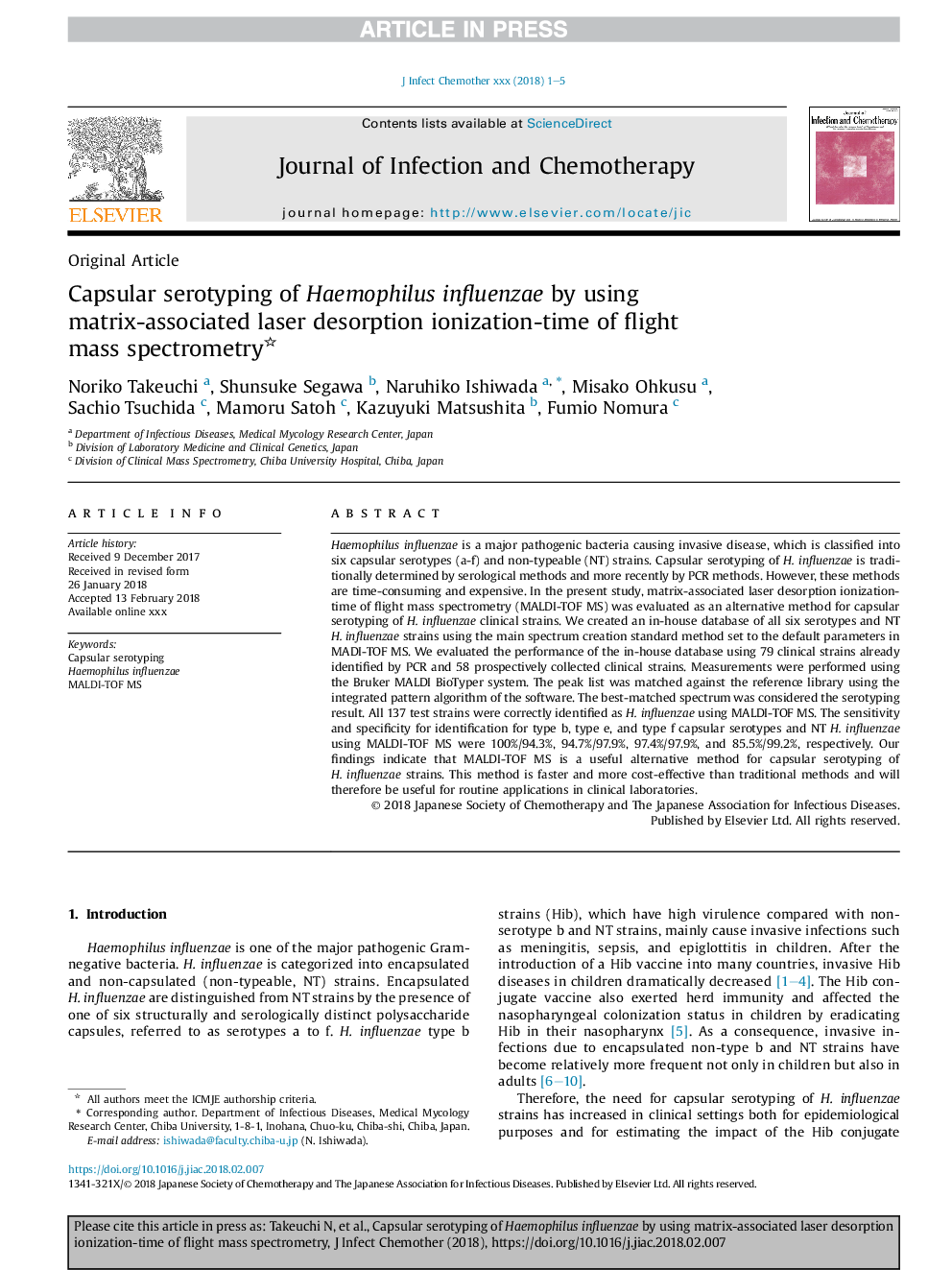| Article ID | Journal | Published Year | Pages | File Type |
|---|---|---|---|---|
| 8740598 | Journal of Infection and Chemotherapy | 2018 | 5 Pages |
Abstract
Haemophilus influenzae is a major pathogenic bacteria causing invasive disease, which is classified into six capsular serotypes (a-f) and non-typeable (NT) strains. Capsular serotyping of H. influenzae is traditionally determined by serological methods and more recently by PCR methods. However, these methods are time-consuming and expensive. In the present study, matrix-associated laser desorption ionization-time of flight mass spectrometry (MALDI-TOF MS) was evaluated as an alternative method for capsular serotyping of H. influenzae clinical strains. We created an in-house database of all six serotypes and NT H. influenzae strains using the main spectrum creation standard method set to the default parameters in MADI-TOF MS. We evaluated the performance of the in-house database using 79 clinical strains already identified by PCR and 58 prospectively collected clinical strains. Measurements were performed using the Bruker MALDI BioTyper system. The peak list was matched against the reference library using the integrated pattern algorithm of the software. The best-matched spectrum was considered the serotyping result. All 137 test strains were correctly identified as H. influenzae using MALDI-TOF MS. The sensitivity and specificity for identification for type b, type e, and type f capsular serotypes and NT H. influenzae using MALDI-TOF MS were 100%/94.3%, 94.7%/97.9%, 97.4%/97.9%, and 85.5%/99.2%, respectively. Our findings indicate that MALDI-TOF MS is a useful alternative method for capsular serotyping of H. influenzae strains. This method is faster and more cost-effective than traditional methods and will therefore be useful for routine applications in clinical laboratories.
Keywords
Related Topics
Life Sciences
Immunology and Microbiology
Applied Microbiology and Biotechnology
Authors
Noriko Takeuchi, Shunsuke Segawa, Naruhiko Ishiwada, Misako Ohkusu, Sachio Tsuchida, Mamoru Satoh, Kazuyuki Matsushita, Fumio Nomura,
